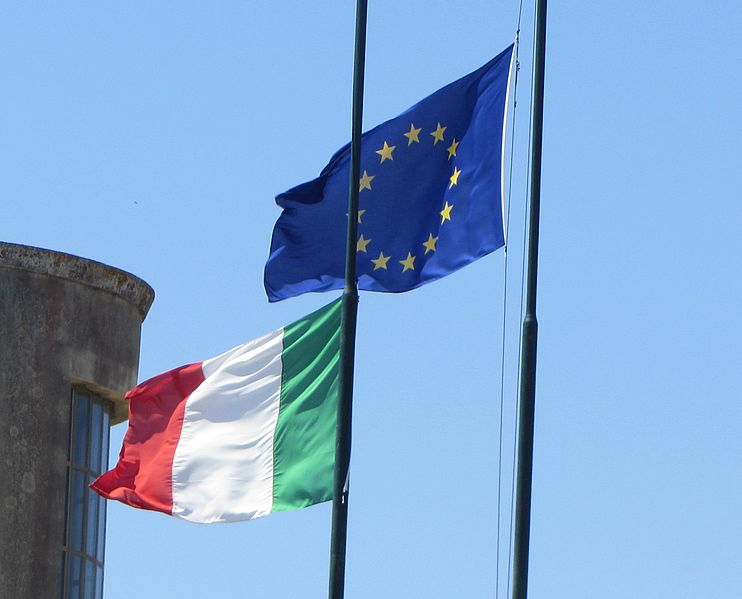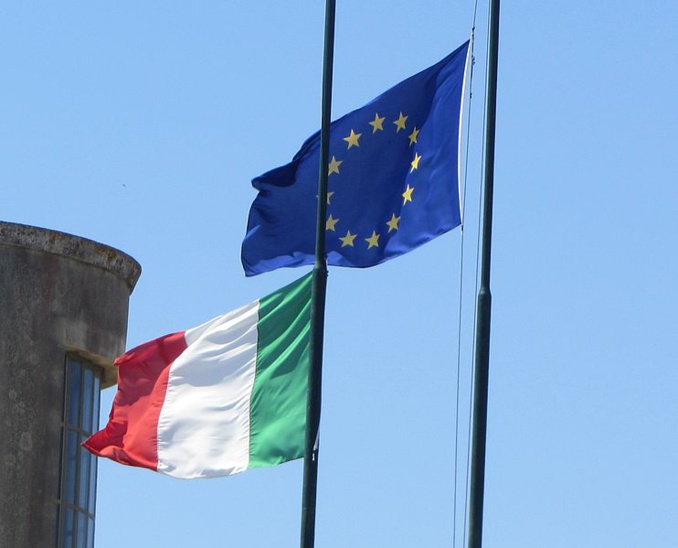All this can provoke a full-scale crisis in the country, and consequently collapse the entire banking system of Europe. However, the whole information background is clogged with reports about Brexit, as a result of which the crisis in the EU can start unexpectedly.
The crisis is at the doors, but almost nobody talks about it, so as not to frighten sponsors and citizens. However, Italian edition Il Sole is convinced that the situation is really serious.
According to a new study by Italian Mediobanca, the "Texas Ratio" of 114 out of almost 500 Italian banks exceeds 100%. 24 of them have the index above 200%.
Texas Ratio, TR is the ratio of bank assets and reserves to "bad" debts. When it exceeds 100%, the organisation has every chance to go broke.
Of course, some of the listed institutions are small savings banks with relatively moderate assets. They are not systemically important, and their problems can be solved without hindrance to the whole system. Yet, this rating also counts in a number of the largest and systemically important banks in Italy, such as Monte dei Paschi di Siena (assets of € 169 bln. and TR - 269%).
Next comes Veneto Banca (assets - € 33 bln., TR - 239%). This bank, along with Banco Popolare di Vicenza (assets - € 39 bln., TR - 210%), has been salvaged last year due to the government’s intervention. Now, however, it needs money again. Together, these banks are the seventh in the rating of the largest banks in Italy.
Some experts believe that Popolare di Vicenza and Veneto Banca would not be able to rely on financial assistance, as they are not considered systemically significant. This nudged investors to withdraw funds from banks, which further exacerbated their problems.
In general, nearly every Italy's largest banking group, with the exception of Unicredit, Intesa Sao Paolo and Mediobanca itself, has TRs well above 100%.
Eisman recently noted that the two largest banks - Unicredit and Intesa San Paolo - have a TR of more than 90%. While other banks remain in their previous condition, they will keep pulling down two large banks. In order to maintain solvency, Unicredit raised € 13 billion this year, and it lent € 24 billion in free money last week.
Banks must be solvent to be eligible for state aid. Presumably, this should automatically set down any bank with TR over 150%, and these are MPS, Popolare di Vicenza, Banco Popolare, Unipol Banca, Veneto Banca and Banca Carige.
The financial support must be aligned with the current EU standards, which stipulate that before the state funds are poured into the creditors, the bank and shareholders, and must conduct a bail-in of eight percent of the total amount of obligations.
Italy's government realizes that such approach can eventually destroy retail investors. In order to avoid this consequence, the government offered to compensate losses to retail holders of bonds by state funds, which is in direct contradiction with the EU laws.
Until now, the EC has remained silent on this issue, apparently hoping that solving the Italian financial sector problems cannot wait for the end of the elections in France in the end of April, given the German elections in the autumn. Then, the continental taxpayers will finance a bail-out of bad debts of banks, as President of the European Banking Authority Andrea Enriia and ECB Vice President Vitor Constancio have already asked.
Absence of guarantees that the Italian banks are able to keep their heads above water makes all this a rather dangerous game of expectation and hope.
source: ilsole24ore.com
The crisis is at the doors, but almost nobody talks about it, so as not to frighten sponsors and citizens. However, Italian edition Il Sole is convinced that the situation is really serious.
According to a new study by Italian Mediobanca, the "Texas Ratio" of 114 out of almost 500 Italian banks exceeds 100%. 24 of them have the index above 200%.
Texas Ratio, TR is the ratio of bank assets and reserves to "bad" debts. When it exceeds 100%, the organisation has every chance to go broke.
Of course, some of the listed institutions are small savings banks with relatively moderate assets. They are not systemically important, and their problems can be solved without hindrance to the whole system. Yet, this rating also counts in a number of the largest and systemically important banks in Italy, such as Monte dei Paschi di Siena (assets of € 169 bln. and TR - 269%).
Next comes Veneto Banca (assets - € 33 bln., TR - 239%). This bank, along with Banco Popolare di Vicenza (assets - € 39 bln., TR - 210%), has been salvaged last year due to the government’s intervention. Now, however, it needs money again. Together, these banks are the seventh in the rating of the largest banks in Italy.
Some experts believe that Popolare di Vicenza and Veneto Banca would not be able to rely on financial assistance, as they are not considered systemically significant. This nudged investors to withdraw funds from banks, which further exacerbated their problems.
In general, nearly every Italy's largest banking group, with the exception of Unicredit, Intesa Sao Paolo and Mediobanca itself, has TRs well above 100%.
Eisman recently noted that the two largest banks - Unicredit and Intesa San Paolo - have a TR of more than 90%. While other banks remain in their previous condition, they will keep pulling down two large banks. In order to maintain solvency, Unicredit raised € 13 billion this year, and it lent € 24 billion in free money last week.
Banks must be solvent to be eligible for state aid. Presumably, this should automatically set down any bank with TR over 150%, and these are MPS, Popolare di Vicenza, Banco Popolare, Unipol Banca, Veneto Banca and Banca Carige.
The financial support must be aligned with the current EU standards, which stipulate that before the state funds are poured into the creditors, the bank and shareholders, and must conduct a bail-in of eight percent of the total amount of obligations.
Italy's government realizes that such approach can eventually destroy retail investors. In order to avoid this consequence, the government offered to compensate losses to retail holders of bonds by state funds, which is in direct contradiction with the EU laws.
Until now, the EC has remained silent on this issue, apparently hoping that solving the Italian financial sector problems cannot wait for the end of the elections in France in the end of April, given the German elections in the autumn. Then, the continental taxpayers will finance a bail-out of bad debts of banks, as President of the European Banking Authority Andrea Enriia and ECB Vice President Vitor Constancio have already asked.
Absence of guarantees that the Italian banks are able to keep their heads above water makes all this a rather dangerous game of expectation and hope.
source: ilsole24ore.com



















